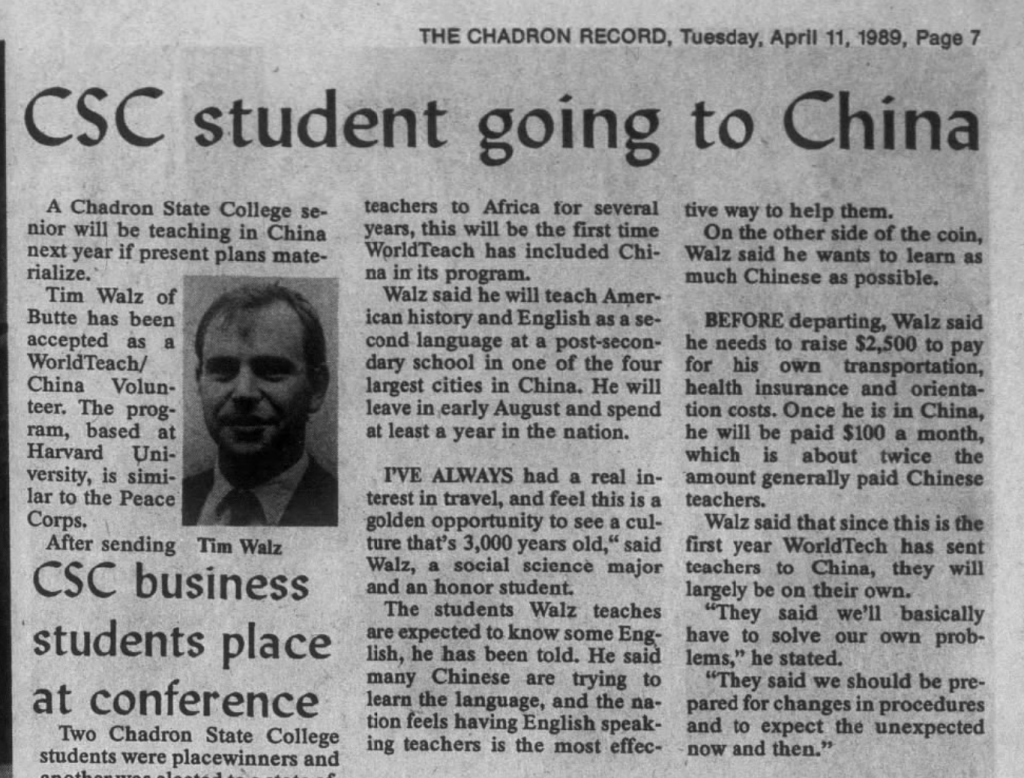CNN Exposes Another Tim Walz Scandal

CNN released a bombshell report concerning vice presidential candidate and Minnesota Governor Tim Walz just hours before his much-anticipated debate against Sen. JD Vance on Tuesday.
Walz faces renewed scrutiny for inaccurately claiming that he was present in Hong Kong during the Tiananmen Square massacre on June 4, 1989. CNN’s K-File investigative team, led by Andy Kaczynski, uncovered past audio recordings and statements where Walz mentioned being in China during the protests—a claim that has now been disproven.
In a 2019 radio interview, Walz stated, “I was in Hong Kong on June 4, 1989, when, of course, Tiananmen Square happened.” However, CNN’s investigation reveals that Walz didn’t leave for China until August of that year, nearly three months after the massacre.
The initial discrepancies were first brought to light by the Washington Free Beacon and Minnesota Public Radio News, with additional confirmation from local news reports from 1989 and 1990.
The false claims, which have circulated for several years, resurfaced just before the key vice presidential debate, where Walz is set to face off against J.D. Vance (R-OH) in New York on Tuesday night. Critics argue that these revelations could significantly damage Walz’s credibility.
When confronted about the falsehood, a spokesperson for the Harris-Walz campaign responded to CNN: “The point Gov. Walz is making when he discusses this is that some folks in the World Teach program discussed dropping out after Tiananmen Square, but he continued on with the program because he believed it was important for the Chinese people to learn about American democracy and American history.”
In a 2014 congressional hearing marking the 25th anniversary of the Tiananmen Square massacre, Walz, who was then a U.S. congressman, claimed that he had been in Hong Kong in May 1989, just before the Chinese government’s crackdown on student protesters.
Walz recalled observing the events from Hong Kong, saying: “I still remember the train station in Hong Kong. There was a large number of, especially European, I think, very angry that we would still go after what had happened, but it was my belief at that time that the diplomacy was going to happen on many levels.”
He continued, “The opportunity to be in a Chinese high school at that critical time seemed to me to be really important. And it was a very interesting summer, to say the least. Because if you recall, as we moved in that summer and further on and the news blackouts and things that went on, you certainly can’t black out news from people if they want to get it.”
WATCH:
MPR later reported, “The campaign was unable to produce documentation to back up Walz’s statement that he was there during the uprising.”
Reports from Nebraska at the time showed that Walz was actually there and not in China at the time of the Tiananmen Square events.

A local outlet, The Chadron Record, stated that Walz “will teach American history and English as a second language at a post-secondary school in one of the four largest cities in China.” The report further noted, “He will leave in early August and spend at least a year in the nation.”

During the debate, Walz addressed the false claims, offering a lengthy explanation in which he admitted to having “misspoken”—a defense he has used previously when confronted about other misleading statements, including inaccuracies regarding his military career, such as falsely claiming he had attained the rank of sergeant major or had combat experience.
WATCH:
Tim Walz is asked why he lied about his trip to China, gives the most cringe-inducing answer of debate season. Seriously watch this unmitigated disaster: pic.twitter.com/eRJapvdxF2
— Clay Travis (@ClayTravis) October 2, 2024